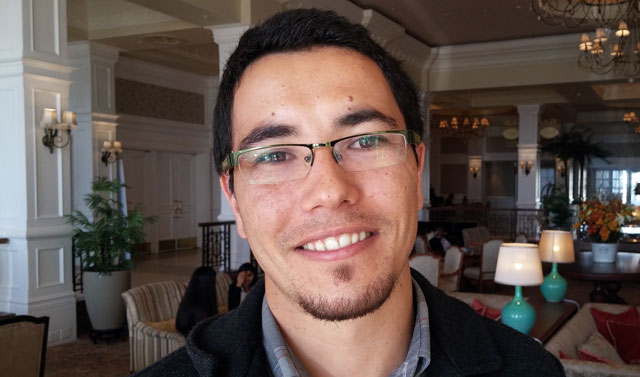 Carlos Rey-Moreno, senior researcher at the University of the Western Cape, is involved in a fascinating project to extend affordable connectivity — voice and data — to the remote and desperately poor Eastern Cape community of Mankosi, located between Coffee Bay and Port St Johns.
Carlos Rey-Moreno, senior researcher at the University of the Western Cape, is involved in a fascinating project to extend affordable connectivity — voice and data — to the remote and desperately poor Eastern Cape community of Mankosi, located between Coffee Bay and Port St Johns.
With Rey-Moreno’s help, Mankosi — which has 3 500 residents spread across 12 small villages — is experimenting with ways of making communication in deep rural areas more affordable and as a result more accessible.
The average personal income in the community is just R388/month. Yet Rey-Moreno says people there spend on average 22% of their income on communication, sometimes even forgoing food so that they can make a phone call.
Fully 87% of Mankosi’s population accesses mobile services at least once a week, with each community member making an average of 17 minutes’ worth of calls in that time. Few use data, however, because of the cost, with only 8% of the community connecting to the Internet in the past month.
Rey-Moreno’s primary focus is finding ways for communities like Mankosi, and there are thousands like it dotted across South Africa, to “self-provide” more affordable telecommunications services using wireless “mesh networks” that connect people on the ground, allowing them to pool resources and reduce costs.
There’s no doubt that the mobile operators, although they’ve done well to extend coverage to most of the population, have failed to make these services truly affordable to those living in rural areas.
Rey-Moreno’s project introduces a more sustainable model for building locally owned voice and data infrastructure that is shared by the community. In effect, the idea is that rural communities create their own telecoms operators to serve their needs.
People in Mankosi have been taught how to deploy a mesh network and can now make calls and have access to the Internet at a fraction of the cost they were paying previously. Initial set-up costs were covered by the University of the Western Cape, but the community is now taking the business model forward.
A 13-node mesh network, which connects people on the ground, is connected to the Internet via a 3G gateway. Revenue the community collects is used to maintain and upgrade available services.
Future plans include providing Internet access to local schools and other “anchor tenants”, and offering Internet access and voice-over-IP calls to Wi-Fi-enabled phones.
But Rey-Moreno has a bone to pick with the mobile operators, whom he accuses of not coming to the party with lower costs for “backhaul”, used to connect the community with the rest of the world. “If prices could be reduced, it would encourage much greater uptake in a community desperate for greater access.”
He says people in rural South Africa are spending an “outrageous amount of their income to communicate very little”. Yet the mobile operators’ infrastructure in rural areas is hardly being used because people can’t afford it.

Direct government intervention, an idea too often touted in South Africa, won’t solve the problem. As William Stucke, a former councillor at communications regulator Icasa, pointed out this week, government “should not assume they can do it better than businesspeople can. The evidence everywhere is that they can’t.”
Which is why government’s decision to “designate” Telkom as the lead agency for rolling out telecoms services in rural areas makes no sense. A large, lumbering incumbent with a high cost base and known historically for its sky-high prices, is never going solve South Africa’s rural connectivity challenges.
Where government needs to play a role is in levelling the playing field. Instead of protecting Telkom and the big mobile operators, which haven’t done what’s needed to get rural South Africa online, it should open up radio frequency spectrum to smaller regional and local players and communities that are prepared to accept much lower profit margins.
There are hundreds of small wireless players in South Africa itching to provide services, and to do so at prices far lower than anything offered by the big incumbents. This is where South Africa ought to be trying to foster innovation. This is how we’ll bridge the digital divide.
- Duncan McLeod is editor of TechCentral. Find him on Twitter
- This column is also published in the Sunday Times

